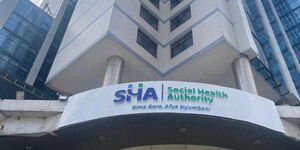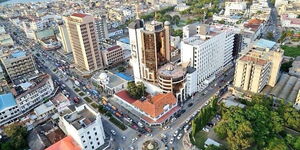The Ministry of Trade has drafted new proposals which will give the Kenya Bureau of Standards (KEBS) inspectors powers to surveil businesses to maintain safety standards for products secretly.
As proposed in the Standards (Market Surveillance) Regulations, 2024, manufacturers and importers will face hefty fines for distributing and selling products that have been condemned.
It is proposed that business owners pay a Ksh1 million fine for such an offence and face a jail term of 12 months.
"The Bureau may, on its own motion or following information by a person or complaint, conduct an investigation and carry out an inspection on a product or consignment or lot or batch of a product; premises; or any other relevant area, including the source of raw materials or processed intermediates that may affect the quality of the product.
"Surveillance and sampling of products may be conducted through covert methods for the purpose of compliance monitoring and gathering of market intelligence," read proposed regulations.
Inspection
As highlighted in the proposal, inspectors will have the power to sample some of the products to ensure they meet the set standards.
Should it be discovered that the products are unsafe and harmful for human consumption and the environment, they will be seized with further analysis conducted.
"Where a product in the market does not meet the requirements of the mandatory standards, the inspector may recommend to the Director to suspend or cancel the standardisation permit of the economic operator
"The inspector may also order the withdrawal of the affected product batches or lots or the entirety of products on the market as the case may be," the Ministry proposed.
Following the seizures, the products will either be destroyed or the manufacturers ordered to take corrective measures depending on the extent of discrepancies established during the inspection.
Notably, the new proposal also mandated the manufacturers and the importers to inform the government should their products be issued with their products.
Some of the product details that they will also be required to furnish the government with include a list of products, accurate product descriptions including proprietary name, generic name, unique identification, quantities of the products and location of the products.
"The economic operator or his agent shall bear the cost of the destruction of the goods," the government proposed.
Notably, the regulations come at a time when there has been controversy over the circulation of fake fertilisers. In the recent past, there has also been public outrage over the circulation of substandard cooking oil and sugar products.












